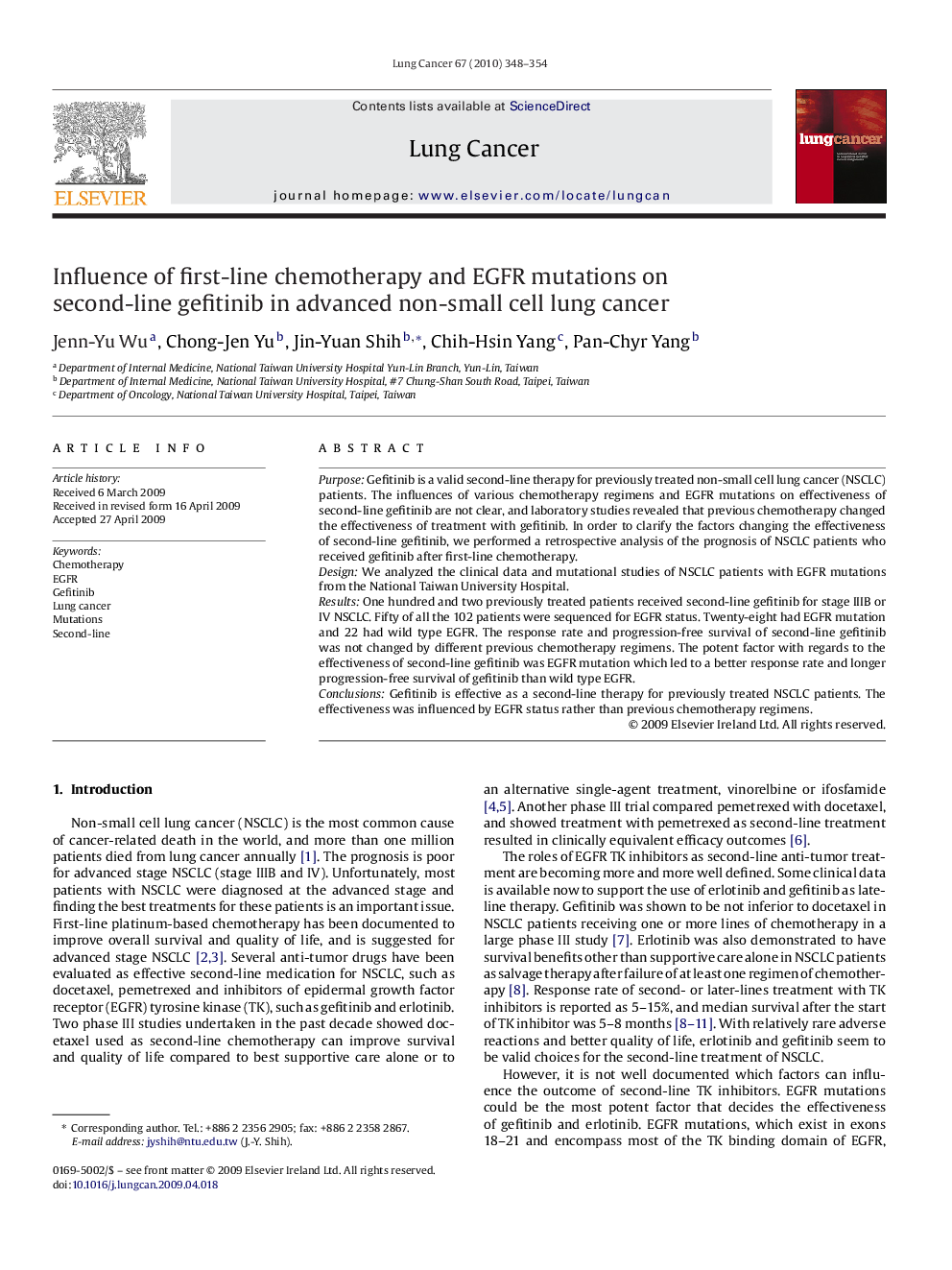| Article ID | Journal | Published Year | Pages | File Type |
|---|---|---|---|---|
| 2143221 | Lung Cancer | 2010 | 7 Pages |
PurposeGefitinib is a valid second-line therapy for previously treated non-small cell lung cancer (NSCLC) patients. The influences of various chemotherapy regimens and EGFR mutations on effectiveness of second-line gefitinib are not clear, and laboratory studies revealed that previous chemotherapy changed the effectiveness of treatment with gefitinib. In order to clarify the factors changing the effectiveness of second-line gefitinib, we performed a retrospective analysis of the prognosis of NSCLC patients who received gefitinib after first-line chemotherapy.DesignWe analyzed the clinical data and mutational studies of NSCLC patients with EGFR mutations from the National Taiwan University Hospital.ResultsOne hundred and two previously treated patients received second-line gefitinib for stage IIIB or IV NSCLC. Fifty of all the 102 patients were sequenced for EGFR status. Twenty-eight had EGFR mutation and 22 had wild type EGFR. The response rate and progression-free survival of second-line gefitinib was not changed by different previous chemotherapy regimens. The potent factor with regards to the effectiveness of second-line gefitinib was EGFR mutation which led to a better response rate and longer progression-free survival of gefitinib than wild type EGFR.ConclusionsGefitinib is effective as a second-line therapy for previously treated NSCLC patients. The effectiveness was influenced by EGFR status rather than previous chemotherapy regimens.
